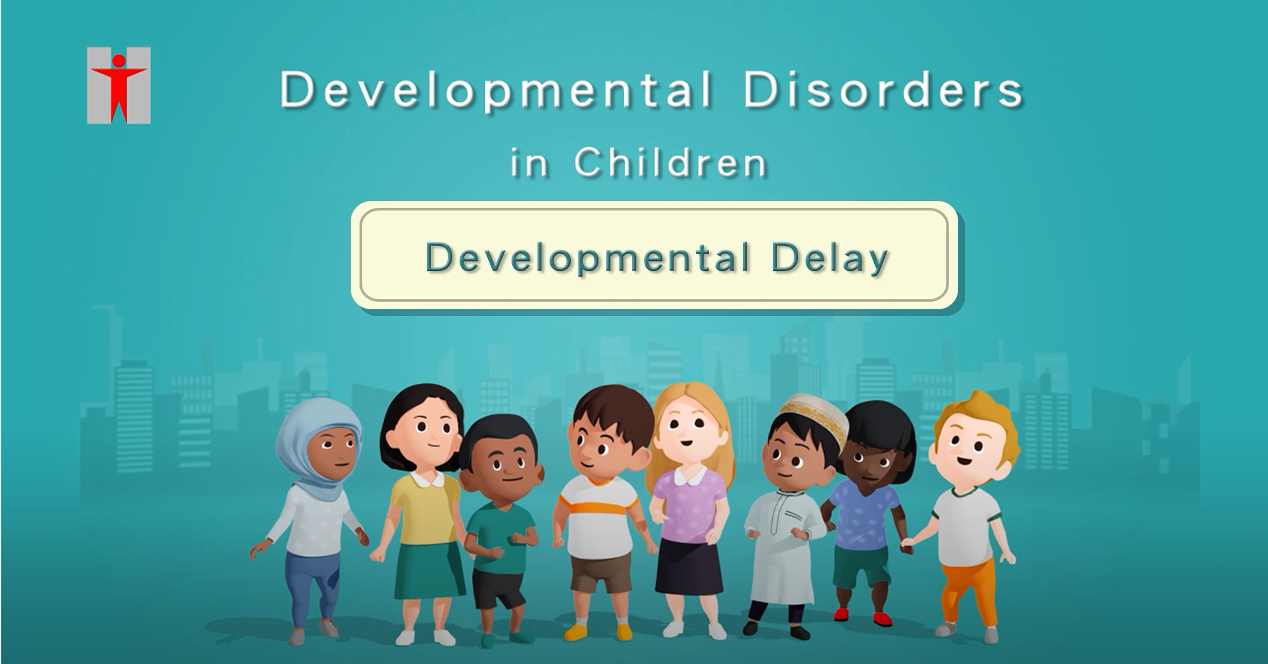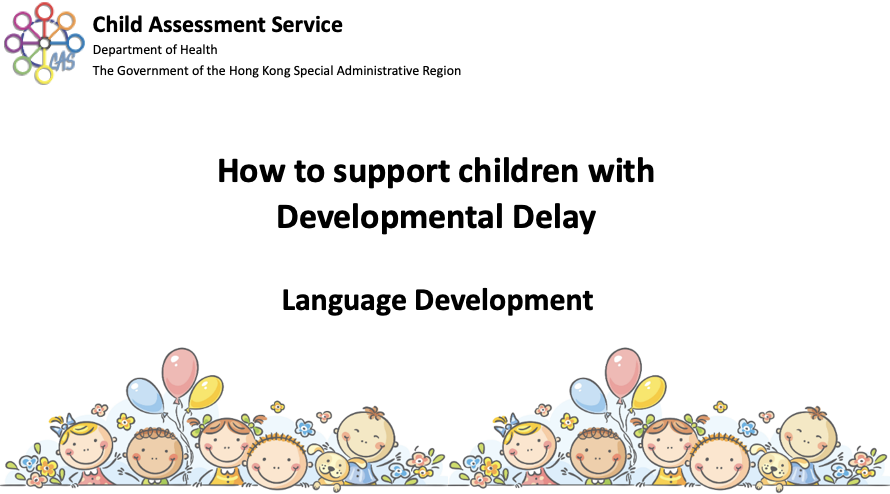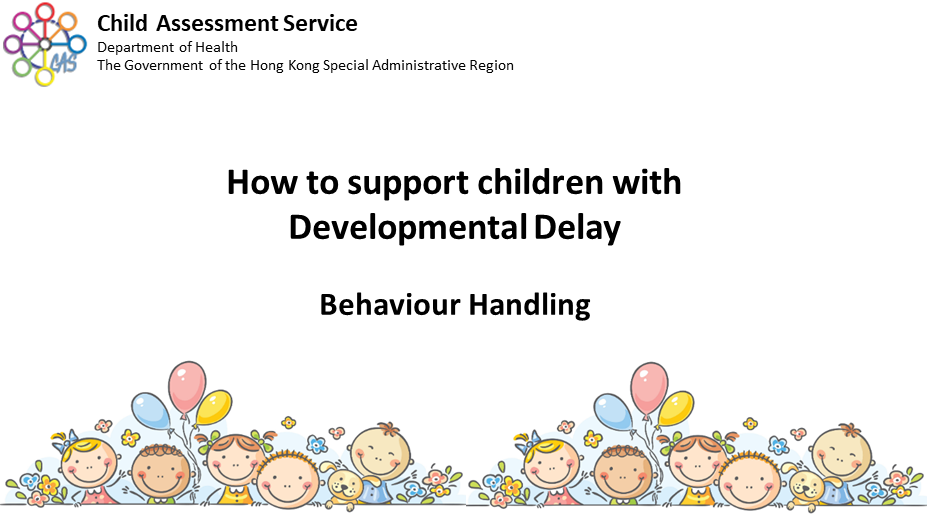Developmental Delay
Child development refers to the sequence of development in cognition, language, motor, behavior and social skills at different age. It is a continuous process with natural sequence and individual variations. Early development is the basis for the later development.
“Developmental delay” refers to a preschool child who does not acquire the developmental skills in comparison to peers of the same age. The discrepancy can range from borderline to significant delay.
Child development is influenced by four factors interactively, namely heredity, environment, growth and learning. The causes of more than 70% of cases are unknown. The causes in the rest of cases can be divided into innate and acquired.
Innate factors are related to genetic or physiological factors, such as chromosomal diseases, genetic problems, and variations in early embryonic development. It can also be related to pregnancy and childbirth, like improper drugs or excessive alcohol use during pregnancy, complications of dystocia (obstructed labour) or premature babies.
Acquired factors are related to the children’s growth and learning environment. For example, illnesses, poisoning (toxins in the environment, such as lead or mercury), encephalitis or brain trauma during infancy and childhood. In addition, adverse social background like busy parents, the lack of appropriate social or language stimulation will all affect the development of children.
With reference to international statistics, developmental delay occurs in approximately 10 to 15 per 100 persons in the general population. Amongst them, about one to three persons have significant global developmental delay. There is no official statistics in Hong Kong, but the estimated figures are similar. According to the data of Child Assessment Services in 2019, among the 9800 referrals, developmental delay accounted for about 30% of cases, and the male to female ratio was about three to one.
As children grow, they are expected to acquire different developmental skills, which are known as developmental milestones. Children may have delay in one particular aspect (e.g. gross motor delay/ fine motor delay/ language delay) or have delay in two or more aspects of development (global developmental delay). If the delay has significant impact on the children, it is called significant developmental delay. If the impact is mild, it is called borderline developmental delay.
If children have any of the following conditions or if parents have any worry about their development, they should seek advices from the relevant medical care providers as early as possible.
6 months old:
- Cannot maintain the head posture steadily
- Cannot reach out for objects
1 year old:
- Cannot stand with support
- Cannot use the tips of their thumb and index finger to pick up small objects (neat pincer)
1.5 years old:
- Cannot walk independently
2 years old:
- Cannot speak single words, like“mum”, “papa”, “car”, “dog”
- Cannot follow simple instructions, like “give mama”, “come here.”
2.5 years old:
- Cannot scribble on paper
- Cannot speak combined words, like “drink milk”, “eat bread”
3 years old or above:
- Cannot speak simple sentence, like “I want crackers”.
- Cannot match basic colours and shapes
- Cannot catch up with the teaching in class
- Develop behavioural problems
Children with developmental delay can have delay in one or more aspects. These include:
- Cognition or intelligence: the ability to learn, think or solve problems
- Language: verbal comprehension (understanding others verbally), verbal expression (expressing themselves verbally) and phonology (articulation)
- Gross motor skills: sitting, climbing, walking, running, jumping and other milestones; muscle strength, balance and coordination and other activities related skills
- Fine motor skills: eye-hand coordination, dexterity, hand grip strength and pre-writing skills
- Social adaptability: social skills, communication skills, self-care and basic skills in daily living
Due to the difference in underlying cause, degree of impairment and environmental background, the symptoms of developmental delay varies individually.
Some children with developmental delay may have other co-existing developmental problems, such as Autism Spectrum Disorder, Attention deficient/Hyperactivity Disorder and emotional problems, etc. Children with serious physical diseases, such as epilepsy, cerebral palsy, hearing or visual impairment, have a higher chance of having developmental delay.
During preschool period of these children, developmental delay maybe an early sign of other developmental disorders. During school age, they may have communication difficulties, learning problem, and even emotional and behavioural problems. They may be subsequently diagnosed to have dyslexia, developmental language disorder, developmental coordination disorder or intellectual disabilities.
Therefore, early identification and intervention is very important to enhance development of these children, and prevent development of more ingrained problems.
Since developmental delay is not a disease, medication is not useful. Appropriate training and education can prevent the problem from getting worse and facilitate children to develop their best potential. Training services include occupational therapy, physiotherapy and speech therapy.
The Social Welfare Department and Education Bureau also provide special preschool training services to children with developmental delay. They include Early Education and Training Centres (EETC), On-site Pre-school Rehabilitation Services (OPRS), Training Subsidy Programme for Children on the Waiting List of Subvented Pre-school Rehabilitation Services (TSP), Integrated Programmes in Kindergarten-cum-Child Care Centres (IP in KG-cum-CCC) and Special Child Care Centres (SCCC).
Parents of children with developmental delay can seek help from the medical care providers for early assessment in order to identify their children’s problem and arrange appropriate training and education services. Parents should participate in their children’s training, maintain communication with the therapists and try to master home training skills to train up their children at home regularly. Parents can try to foster other talent and strength of their children in daily life so as to build up their self-confidence. Parents can also join parents support group to share their feeling and relieve their stress. They are encouraged to utilize community resources to support themselves and their children.
- Department of Health, Child Assessment Service
www.dhcas.gov.hk - Department of Health, Family Health Service(Maternal and Child Health Centres)
www.fhs.gov.hk - Social Welfare Department
www.swd.gov.hk - Education Bureau: Special Education Information Online
Education Bureau: Special Education Information Online - Hong Kong Education City: Inclusion Pavilion
https://www.hkedcity.net/sen
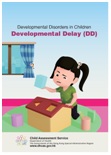
Short Factsheet
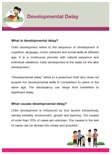
Long Factsheet
